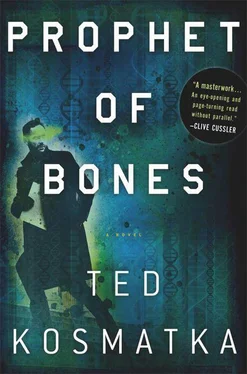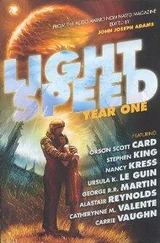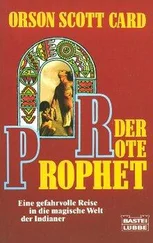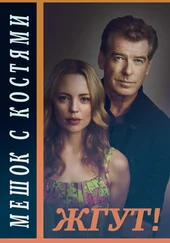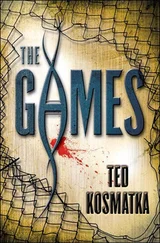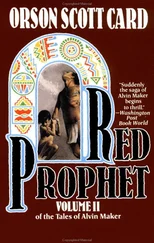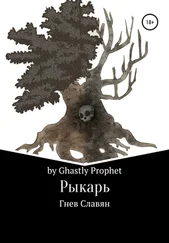The door slammed shut.
A blond man sat facing him in the near darkness.
“Hello,” the man said. “You came, after all.”
“So it would appear.”
“Looks like I lost my wager,” the man said. “I was betting against you.”
“Sorry to disappoint.”
“No, it’s quite all right.” The man smiled. His eyes were very blue, even in the darkness. “I’m happy to lose the bet,” Ekman said. “It saved me the trouble of coming to get you.”
* * *
The limo pulled away from the curb and merged into traffic. There was a momentary glimpse of sun—just a flash between clouds—and then the overcast came down again like a hammer. The traffic here was a nightmare. Gavin wondered how people lived with it, constantly tripping over one another, their lives literally clogged with the presence of their fellow man. In Australia, he’d experienced traffic, of course, but nothing like this.
The blond man stayed quiet, though his eyes never left Gavin. He had a youngish, almost pretty face, the beginnings of a beard stubbling his jawline. Although his hair was blond, the beard coming in showed a distinct shade of red. A scar bisected his lip, only partially hidden by the facial hair he wore to conceal it. He had on an expensive suit and shiny black shoes. Gavin knew that you were supposed to be able to tell a lot about a man by his shoes, but he’d never picked up the knack. He considered this for a moment and decided he was glad for it. Because as soon as you learn something like that, a simple pair of shoes can become a disguise.
The limo found its way to the highway. The next two hours passed in a haze of terrain so mind-numbingly flat and bland that it seemed they’d never left the runway. Such was Florida, apparently. Then finally, an exit to the right, and they pulled onto an interior access road that led deep into the coastal wetlands.
Here the land was still flat but punctuated by occasional ditches of brackish water, all of it hemmed in on the sides by thick vegetation. This was the jungle dream, he realized, or close enough.
They followed this road for ten minutes before the land opened up again as they rounded a bend. They passed through a gate going fifty miles an hour. A subtle, hidden border in the overgrowth. Gavin turned and saw the gate closing smoothly behind them, the limo having obviously triggered some kind of automatic-pass system. When he turned back around to face forward, they were rounding another, final bend in the road, and the facility loomed before them.
Then all at once, they were there. Axiom. If it wasn’t in the middle of nowhere, it was in that postal code. This was no doubt not an accident of circumstance. Isolation had its benefits. The limo pulled to a stop. A moment later, the door opened.
“After you,” the blond man said.
Gavin stepped out into the muggy afternoon air, his feet crunching on the white gravel.
Two men stood at the base of the steps to greet them. Behind them sprawled an imposing three-story building, a single monolithic facade of dark gray stone divided by modern tracts of windows. Except for the windows, it could have been from any age. The gravel drive formed a wide circle with a large flagpole in the middle. At the top of the pole, an Axiom corporate banner drooped in the humid air.
“Mr. McMaster, I presume,” the first man said. He was taller than his partner, younger, darker. The other man simply stared. Both wore the exact same dark suit as his escort.
Gavin nodded.
“If you’ll follow me.”
Gavin followed the men up the stairs and through a wide set of double doors. The blond trailed behind. The doors led not into the interior of the building, as he’d expected, but, instead, through a short hall that flowed into a wide open space bounded by the two opposing wings of the facility. The building was roughly U-shaped, and in its center was a broad courtyard. It might have once been beautiful. Plush, overstuffed couches sat moldering along the wall. As he moved farther in, his puzzlement grew. Crates marked BIOLOGICAL HAZARD sat stacked in the hall alongside five-foot cylinders of hydrogen gas. It was like an Eastern European university campus in the extremis of some bizarre post-Communist decay. It was a place that defied comprehension. Part laboratory, part compound, part palatial estate. Gavin wondered what it had been before it became what he was looking at, but then he chided himself. It had, of course, been nothing. This place had been built to suit. The old man wouldn’t have had it any other way. But the old man’s vision of the place, whatever that vision might once have been, was now long deranged. What might have once been picturesque was overgrown and thronged with weeds. A path wound its way through the neglected territory at the center of the courtyard. Gavin followed the men across the lawn and around the side of the building, through a patch of woods and into a clearing. The first hint of a breeze stirred the air.
In all his years of association with Martial Johansson, he’d never been called to this place, though he’d heard the stories. The stories, it turned out, hadn’t done it justice. Numerous outbuildings were spread over several acres of wooded landscape with winding roads and paved footpaths running between them. Each outbuilding looked as if designed by a different hand for a different purpose. One was gleaming and modern, another almost rustic and quaint. A third could have been a prison, dark gray walls rising twelve feet high. It was like some bizarre chess set designed by a very rich madman. Here and there were places where buildings had once stood and now only charred timbers remained, left to blacken and rot in the humid air. At one point, they crossed a small footbridge that arched over a narrow stream.
They came upon the old man in the garden.
Gavin hesitated when he saw him, his feet slowing on the muddy track.
The old man was turned away from them, his bald head shining in the glare of the sun—still tall and straight and severe. He’d grown into his years like an oak. His true age startled people. He was staring up the trail at something, as if distracted by a sound only he could hear.
Then the old man turned, and there was a momentary flash of expression across the broad, weathered face. Something that in other men might have been pain.
“Gavin,” the old man said.
And here he was, stripped of legend. There were so many competing stories about him. He was incongruous, a phalanx of illogical contradictions. Here was a man who donated millions of dollars to medical research, yet kept his own discoveries to himself. He was petty and paranoid and utterly fearless. He’d saved lives and killed people. To some, he was an icon. To others, insane. But there was no denying the power he wielded. The truth was, the old man scared the shit out of Gavin.
“Sir,” Gavin said.
“It’s been a long time. How many years?”
“Too many.”
“You’re tan,” the old man said. “That Indonesian sun has browned you up. Walk with me.” He turned without waiting for a response.
Gavin followed. They walked down a path of stones. The three men trailed behind at a respectful distance, sweating in their dark suits.
The old man handed Gavin a pair of binoculars, and when Gavin took them the grip was slick with sweat.
Gavin had first met the old man twenty years earlier.
It had come down to money, though he’d let himself call it something else. The old man—and he was already old, even then—had let him keep the pretense of his ideals, at least for a little while. At least until Carlsson had come along.
How do you turn down everything you’ve ever wanted?
And the old man had known somehow. The divorce, the money problems, the barriers to advancement in the university system. Looking back, he saw that he’d been groomed from the start, though he hadn’t perceived that at the time. Gavin had just been another piece in the old man’s chess set.
Читать дальше
